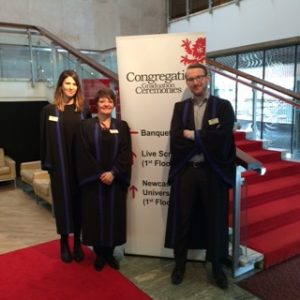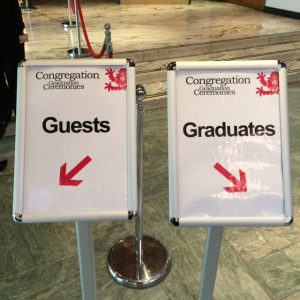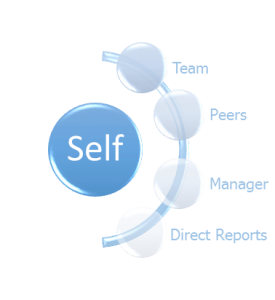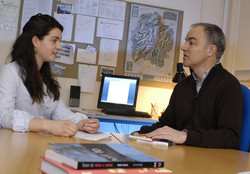The marquee is up. The coffee stops are busy for the time of year. Smartly dressed people with multi generations of their family in tow are milling around. It must be that time of year again… Congregation (that’s graduation ceremonies for those of you who don’t know.)
The culmination of all those years of hard work, study, fun and learning has arrived and the students are about to become graduates – at their very own degree ceremony, alongside their peers, at Newcastle University.
Encouraged by my colleagues, I recently volunteered to marshal at one of the first Congregations of the season. Expecting it to be quite a functional experience of showing people where to go, I found it quite a privilege to be able to share this special day with our new graduates and their guests. This day is one of life’s major events and I got to observe their special occasion. Directing people to their seats, offering assistance where required, and meeting other members of staff also volunteering from right across the university.

If you haven’t ever volunteered at one of these events or even if you have, but not for a long time, I would really recommend it. So next time the call goes out to staff for volunteers, it could be you saying,
“Guests to the left, graduates to the right.”

Emily Thomas


